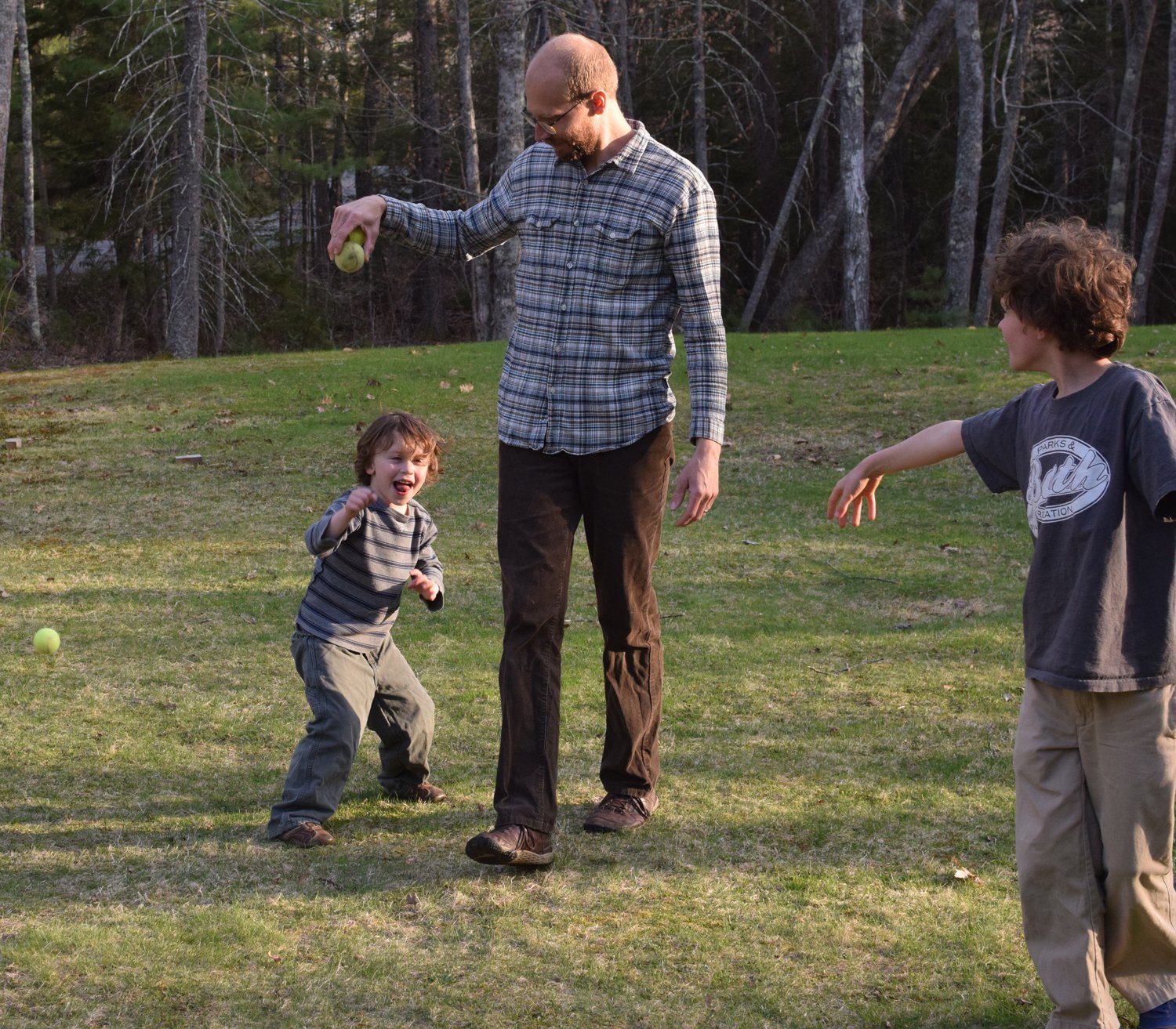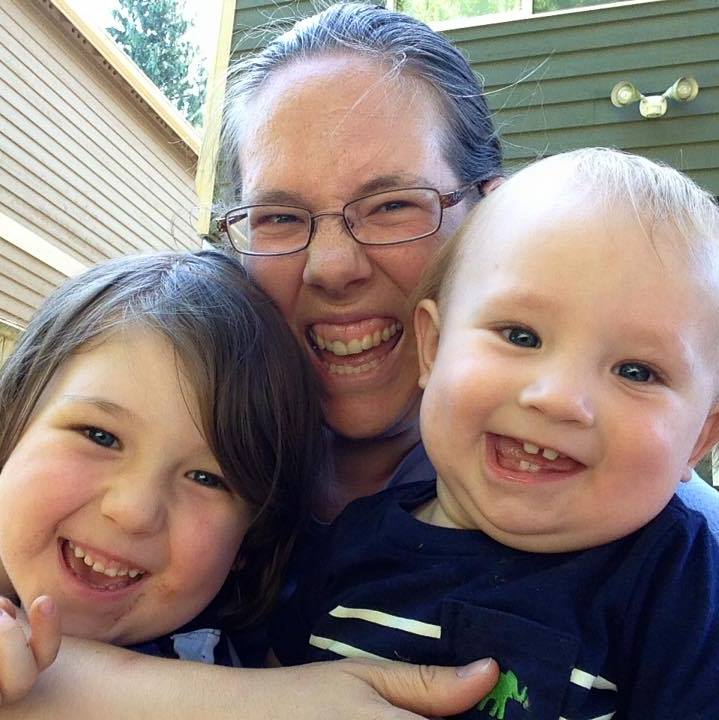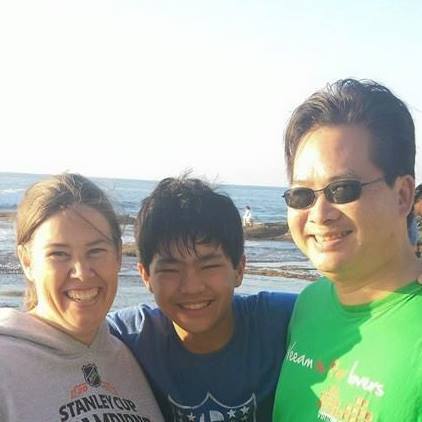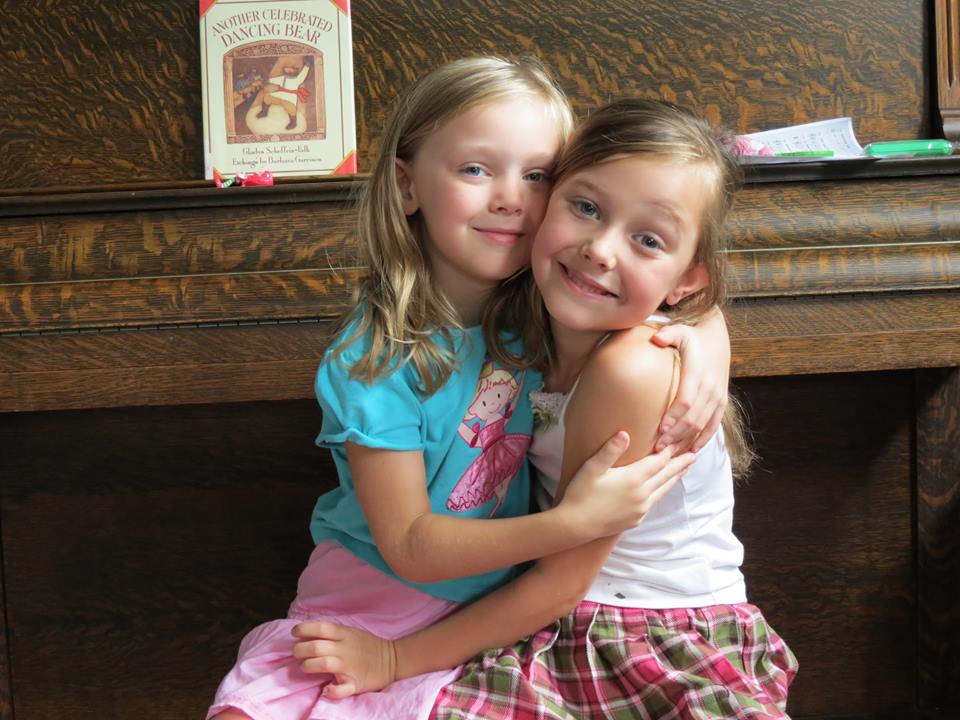When I first decided to homeschool my kids, I felt, in a word, overwhelmed. Homeschooling had always been kind of a mystery to me. My ideas about it were mostly based on stereotypes involving un-socialized kids, religious zealots and… a lot of worksheets? Something like that. As soon as I dove in, however—reading up on various homeschooling philosophies and tapping into my local homeschooling community—I was amazed by the range of possibilities this option presents.
There are as many styles and approaches to homeschooling as there are families doing it. Most homeschooling families aren't just staying at home playing school. Instead of mimicking school's structure they're redefining it, or eschewing it altogether. They're exploring outdoors, they're engaging with their communities, they're creating projects with mixed-age groups of kids, they're baking and hiking and cleaning, they're learning from books and real life alike. As our family embarks on what would be my older son's Kindergarten year at home, my fear has been replaced by excitement and anticipation and I now look forward to discovering alongside him what lies ahead on this path.
Read on for five other homeschooling moms' perspectives and reflections on their own families' experiences educating at home.
RELATED: 10 Celebs You Didn't Know Were Homeschooled
Sarah Carley Thompson, a mom of two in Portland, Maine is a self-described "radical unschooler." She considers her approach to educating her boys to be integral to how she approaches life itself.
"When my older child was a baby, it seemed like so much of the parenting advice I received was directed at pushing him away from me. Here was the most important thing I would ever do, most likely. It felt much more meaningful and less stressful to approach it from the perspective of trying to be as intentional, mindful, positive, and skilled at it as possible, rather than to view parenting as a necessary hardship that I had to survive until he could be independent of me. My guiding question became: How could I connect fully with my son, just be where he was, and not worry about the background noise? The more I learned to love him as he is, rather than as I expected him to be, the more I learned to love the world.
As he grew from a baby into a school-aged kid, this parenting philosophy naturally led me to unschooling. Radical unschooling is about trusting and connecting with my kids and creating environments where they can pursue their passions and joy without my filter; being quiet so they can hear their hearts speak and listening when they tell me what the inner voice is saying (especially when they tell me with their actions rather than words). Our days can look like, well… anything; everything is an option. It's a long string of Saturdays filled with time in nature, science experiments, reading, and trips to cool and interesting places. The biggest challenge is that, because this approach to parenting and education sometimes conflicts with conventional expectations, I have to work at navigating relationships with other families and advocate for my kids and their passions in order to provide them this freedom to learn that I value so much."

Sarah's husband and their boys.
Autumn Kerr is a homeschooling mom to seven kids in Austin, Texas who feels drawn to the choice as an extention of her faith. She combines various approaches to homeschooling, resulting in an eclectic homeschooling style.
"Before I had children, I never thought I'd homeschool. I thought homeschooling kids and families must be odd and unsocialized. Today, I proudly say that we are a homeschool family with 5 of the 7 actively being homeschooled, and I wouldn't trade it for anything. As my grandmother says, my 'cup sloppeth over!'
I am trying to obediently follow what the Lord has called our family to do. We believe the Bible when it charges parents to teach their children diligently. I also simply want more time with our children; they grow up so fast and I want them to have a firm foundation before heading out into the world. Homeschooling allows them to move at their own pace and develop a love for learning, striving to do and be their best, not being compared to others and standards.
Our days are gloriously full. My kids don't sit at a table all day doing worksheets. We have story time and field trips, history and science projects, and we belong to a co-op where they learn alongside other homeschooled kids. They're also learning how to keep house, cook, fix things, help with younger siblings and work with older siblings, manage their time, be self starters, and do their best for the Lord: these are all life skills that I believe will help them to be happy, successful adults.
It's not perfect, but it is amazing. I get to see them grow, see their faces when they master a task or information, help them through their frustration as they learn to read and memorize math facts. I read once 'The days are long but the years are short.' This is really true, and it hits me harder with each passing year."
Most importantly, though, homeschooling my kids is a grand adventure for our family.
Erin Daniels, a single mom by choice, is working part time and homeschooling her two preschool-aged boys in Seattle. Erin's style is Waldorf-inspired.
"I'm a former teacher and I've chosen to homeschool for a variety of reasons: I want my kids to have more time to play and be children than they would get in the few short hours after school and homework; I want them to have more opportunities to follow their interests than they would get in a class where the teacher must meet the needs of all the students; and I want them to have more opportunities to do science if they're interested (my parents were both scientists.) Class size is really key in education, and a class size of two allows the teacher to give a lot more personal attention to each student than they could in a class of 25-30 students.
I really like the Waldorf approach, but the Waldorf schools were too expensive for me to afford on my own. Plus, I agree more with some parts of the philosophy than others, so homeschooling allows me, together with my children, to create the learning experiences that best meet their needs and interests at the moment, and that address my goals for them for the future. I want them to be happy and to be creative and innovative problem solvers. Most importantly, though, homeschooling my kids is a grand adventure for our family. I believe my kids are best served at this age by spending time together as a family, and we are having so much fun learning and discovering together.
I love to see how excited they are about the world and would be sad to miss out on that part of their experience. We are out in the community most days of the week, interacting and playing with friends and neighbors, and its been really helpful for my kids to have me nearby to support them as needed in their exploration of the world, to help them through any difficulties they may encounter and so forth. We have a daily, weekly and seasonal rhythm, and we spend a great deal of time outside and doing crafts. We are not Waldorf purists by any means (for example Liam does watch a bit of TV and we have a weekly family movie night.)
My biggest challenges are figuring out how to get done all that needs to be done: balancing all the various and sometimes contradictory needs of my kids, myself, and our dogs and dealing with people who disagree with my decision to homeschool my kids. I don't know that I've found a solution to any of those, but I try to take things one day at a time, and try to do things each day that will make the next day easier.
The rewards warm my heart—seeing my kids thrive and be happy with our life, getting to be there as they discover so many new things about the world, taking on the challenge of educating another human being and finding what will help that person learn. I feel that homeschooling is this gift I've been given to be able to watch and participate in my children's education. We are really just at the beginning, we are having so much fun, and I'm really excited for our journey together. I actually feel a bit guilty that we're having so much fun."

Erin with her sweet boys.
Holly Dong is a mom to a 13-year-old son in Lake Matthews, CA, and has been homeschooling from the start (though she never expected to continue doing so for this long.)
"I never thought I would homeschool. It is a frequent comment, yet true for me. And I certainly never thought I would homeschool for so long! When we started homeschooling, the plan was for us to only do so for two years. A new school was going to be built at the top our hill, opening when my son started 2nd grade, and I didn't see driving my kindergartener 25 minutes twice a day until then. Eight years later and homeschooling is now part of our regular lives.
The hardest part, same as it would have been with public school, is living rurally. While great for many reasons, it means I spend 30-45 minutes each way driving my son to his friends and activities several times a week, sometimes longer for field trips. As an only child, developing a rich social life is important for him, and it takes more effort on my part because we homeschool—not just the driving, but finding and leading activities, as well. The upside, though, is that we have infinite flexibility, both in scheduling and in our ability to tailor his education. Right now my son uses mornings for his own projects—sometimes digital art, animation or piano, and the afternoons are saved for more formal lessons. This structure has evolved over time and surely will again. The middle school and high school years are times of huge transitions, and I'm not sure what to expect, but I do know we've chosen a path flexible enough to adjust to the changes."

Holly and her family.
Julie Sane is a mom of two girls in Dalton, Georgia. Her daughter's severe food allergies led her to homeschooling. She follows a literature-based curriculum that can be purchased online.
"We've just begun our fouth year of homeschooling. I was so giddy to get started this year! That wasn't always the case though; staying at home was never part of my plan. My daughter was diagnosed with multiple food allergies when she was 11 months old. Prior to school enrollment, we did the annual bloodwork and found that her peanut allergy had increased by 700%! I had already been speaking to multiple public schools in our area and it was clear that a classroom environment just wasn't going to be safe. Our schools were not trained on how to manage food allergies; students did not regularly wash their hands after lunch, peanut butter was served daily in the cafeterias, allergens were brought into the classroom for birthday parties, holiday celebrations, projects and rewards, our district had only one nurse that floated between all schools and was at any given school less than 1/2 day per week, and substitute teachers were not trained on food allergies or epinephrine. Obviously, this wasn't going to work. Thus we began our homeschooling journey.
We still take it year by year. Now that my daughter is older and does better with self-management, we will consider public school if homeschooling stops working for us. But for now, we are beyond happy with our unexpected path and I love being the person who gets to teach my girls. To help keep us active, I have founded a local homeschool group and regularly plan field trips, allergen-free parties, and more.
RELATED: I'm Failing at Homeschooling
My goal is raise two kids that love learning. Our school days are pretty relaxed. We start with the boring stuff like math and phonics. After a short break, we move on to the meat of our curriculum, Five In A Row, a literature-based curriculum. We read a story together and talk through different aspects of it. Our social studies, science, and language all revolve around the story. The kids work on their notebooking pages, which we keep to remind us of the wonderful stories we experience throughout the year. We have a short period where each child reads aloud and then I read from our chapter book. We also balance in time with friends, gymnastics and piano lessons. When we're driving to and from events, we keep our time productive by listening to audibooks that are relevent to our main story. So far, it's a routine that works well for our family and keeps the kids excited about school time."

Julie's happy, homeschooled daughters.
Do you homeschool, or have you thought about it?
Image via Taylor Hengen Newman




